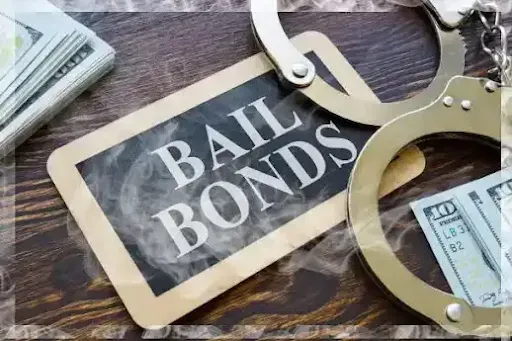What is a Bond for Bail?
A surety bond is a particular kind of bail bond.
A criminal defendant signs a bail bond, promising to show up for court or to pay a predetermined amount of money.
A bail bondsman pays the defendant a fee in exchange for guaranteeing the payment on the bail bond, which is cosigned by the bondsman.
Only in the United States and the Philippines is there a system for commercial bail bonds.
In some other nations, a defendant's release from custody until their trial date is exchanged for a set of restrictions and conditions.
Main Points
- Instead of paying the full amount of the bail ordered by the court, a defendant posts a bail bond cosigned by a bail bondsman.
- The bail bond guarantees that the defendant will show up for court.
- Bail amounts are often established by judges with a great deal of discretion.
- Bail bondsmen often demand a 10% up-front payment for their services, with the possibility of further costs.
- Some states have capped the amount charged at 8%.
- Many people believe that the bail system unfairly penalizes low-income defendants and contributes to the disproportionate incarceration of young African-American men.
How Bail Bonds Operate
A judge will normally hold a bail hearing for a person who has been charged with a crime.
The judge has the last say over the bail amount.
If the defendant is accused of a violent offense or appears to be a flight risk, the judge may completely deny bail or set it at a very high amount.
Bail amounts are typically established with great discretion by judges, and standard amounts vary by jurisdiction.
Bail could be set at $500 for a person facing a nonviolent misdemeanor charge.
Bail amounts associated with felonies are typically substantial, averaging $20,000 or more.
After the bail amount is decided, the defendant has three options: either stay in jail until the charges are proven at trial, get a bail bond, or pay the bail sum in full until the case is through. As a last resort, some nations' courts accept ownership of a home or other valuable collateral in place of cash.
Bail bondsmen often demand a 10% up-front payment for their services, with the possibility of further costs.
Some states have capped the amount charged at 8%.
Additionally, the agent might ask the defendant to provide a statement of creditworthiness or provide securities or real estate as collateral.
The majority of valuable items, including vehicles, jewelry, homes, and stocks and bonds, are typically accepted by bail bondsmen.
The defendant is granted release pending trial if the bail amount or bail bond is paid.
The Problems with the Bail Bond System
The controversy about mass incarceration in the United States, particularly of young African-American men, has expanded to include the bail bond system.
Many people, including many in the legal profession, believe the bail bond system to be unfair because it forces low-income defendants to remain in jail or scrape together a 10% cash fee and the remaining bail-in collateral before they face any criminal charges.
According to PrisonPolicy.org, 536,000 inmates are now being held in jails around the country because they are unable to afford bail or the services of a bail bondsman.
Illinois, Kentucky, Oregon, and Wisconsin are the four states that have banned bail bondsmen in favor of requiring a court to receive a 10% deposit on the bail amount.2018 saw a vote in California to do away with monetary bail in its courts.
Example of a Bail Bond
Let's say Melissa, a resident of New York, violated the law, and the court set her bond at $25,000.
Melissa doesn't want to spend the time in jail as her legal case is being examined, but she lacks the $25,000 in cash.
As a result, Melissa chooses to get in touch with a bail bondsman to post a bail bond.
The bondsman is compensated with 10% of the bond, or $2,500, for their services.
The bondsman gets an equivalent amount in security from Melissa or a member of her family for the remaining $22,500.
The $22,500 in collateral is returned to Melissa after the trial because she follows the court's rules and appears at her scheduled hearings. She received $2,500 less than she would have if she had covered the bond herself.
What Kinds of Things Can Be Used as Bail Bond Collateral?
Bail bondsmen will take a variety of collateral, including jewels, stocks, bonds, stocks, real estate, cars, and credit cards.
What Takes Place if I Am Unable to Post Bail?
Sadly, if you are unable to post bail, you will probably be held in custody until your case is finished.
Will My Bail Money Be Refunded?
Depends, really.
For instance, in New York, if you appear in all of your scheduled court appearances, the bond amount will be reimbursed after your case.
You will receive a full refund of your bail money if you are found not guilty or if your case is dropped.
However, it will be reimbursed less a 3% fee if you are found guilty.
You must also show up for all of your court dates or you risk losing your bond.





Comments
Post a Comment